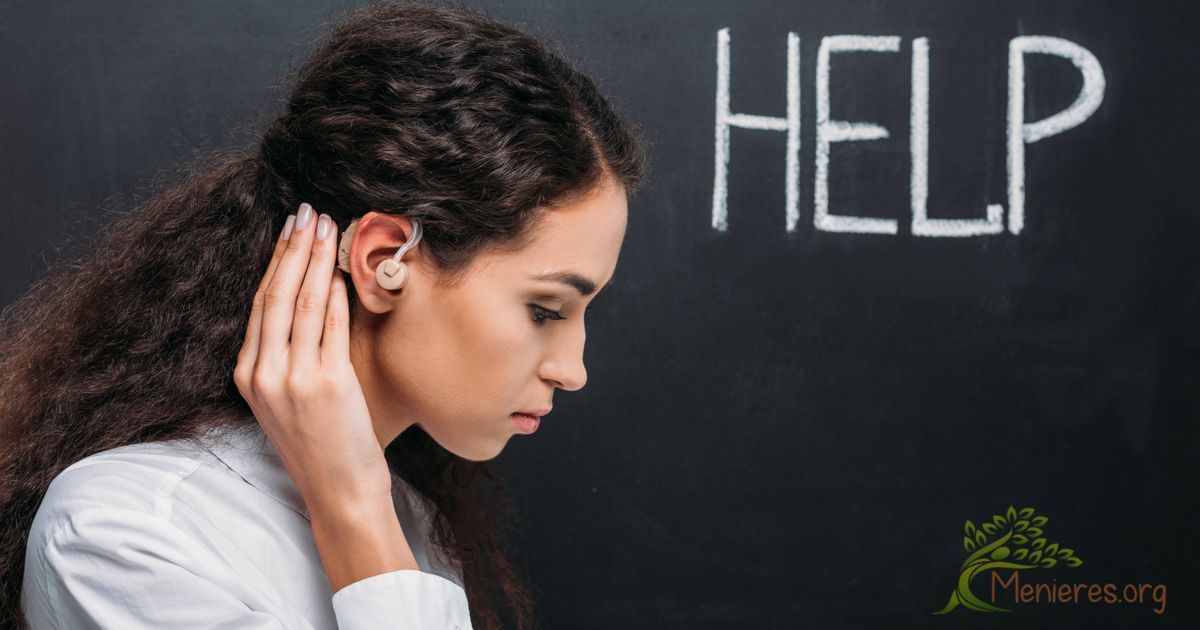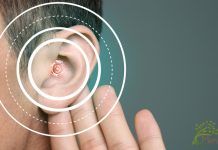
The study of Meniere’s Disease is a slowly growing segment in medical research. While Dr. Prosper Meniere noticed a grouping of symptoms in his studies on deafness in the mid-1800s, it wasn’t until 2015 that a formal consensus came forward for diagnostic criteria. That may, at first, seem like a long pause for progress. It becomes far more understandable when you realize:
- Meniere’s Disease is Invisible: To most people, the patient seems fine with the exception of the onset of irregular symptoms.
- Meniere’s Syndrome is Rare: It affects only .2% of the population.
- Meniere’s Disease is Erratic: Symptoms come and go and there’s no specific period revealing duration or when the next episode strikes.
- Meniere’s Syndrome is a complex disease: There are several specific manifestations of this condition, but they may, or may not all appear with the same severity in each episode.
Definite and Probable Meniere’s Diagnosis

When a physician first suspects Meniere’s he or she looks for specific patterns. A patient receives a probable diagnosis if they have experienced two or more attacks of vertigo, both of which last at least 20 minutes (but can last a full day). This person also has shifting hearing problems in one ear including tinnitus and the feeling of stuffiness. Finally, tests do not find any other vestibular issue or underlying physical problem that explains these symptoms.
The determining factor that pushes “probable” to “definite” is that the patient presents with low-frequency hearing loss in one ear. This loss occurs before, during or after a vertigo episode, and may become permanent. Many of Meniere’s patients have hypersensitivity to sounds and a history of migraines.
Helpful Products for Coping with Meniere’s Disease

Once your physician is sure of a Meniere’s diagnosis they will reveal a wide range of potential treatments based on your history of symptoms and their intensity as well as frequency. Besides this, they may suggest many commercial products that make living with Meniere’s Disease less difficult.
Adaptive Equipment: The riskiest part of Meniere’s is the unpredictable dizziness. You can be anywhere. With that in mind, you can consider adaptive equipment for your home. A shower chair or bench (with a nearby handrail) is an excellent example. This gives you stability.
You could go one step further and install a hand-held shower head that extends to the chair with ease. This pairs with the chair for safety and decreases neck movements that sometimes set off a Meniere’s attack.
Earplugs: High fidelity earplugs decrease the decibel levels of sounds around you while maintaining sound quality. You can use these in any noisy environment, such as a concert, so you can enjoy the music and still hear conversations. For nighttime sound sensitivity, a regular, comfortable pair will do, like soft foam.
Headphones: Noise canceling headphones are an alternative to earplugs. These work in a variety of environments where you might encounter uncomfortable sound levels from the outside. Better still, you can enjoy what you WANT to hear from the headphone. There are versions of headphones with a unique design to ensure your comfort as you sleep.
ID Bracelets: Medical identifiers have been an amazing helpmate to first-responders. The Information on this bracelet tells whoever reads it about your Meniere’s, which is vital if you have a fall attack.
Headbands: Come in a wide range of materials, colors, and densities. If you wear them down around your ears, they decrease the noises around you outside. You can also dab therapeutic essential oils on the fabric if you wish (like lavender, ginger etc.).
Light Dimmers: Let’s face it, you don’t want to always wear sunglasses indoors or at home. Dimmer switches are a very inexpensive, quick fix that allows you to shift the light to a comfortable level.
Medical Alert Devices: Wearable devices which have a specific design recognizable by a third-party. The equipment gives the “heads up” when you are in medical trouble. Products in this field are suitable for both in-house and mobile applications. The medical alert options can include a fall detection feature and 24/7 monitoring. Each product has different month-to-month fees and mobile battery life, so you’ll want to shop around for what fits your situation best.
Meniett Device Therapy: This little gizmo pushes puffs of air into your ear. There hasn’t been a lot of testing done on it, but some people find it helpful.
Posture Products: Someone wears these items as a way of helping correct bad posture. Since we know movement often impacts Meniere’s attacks, keeping your spine aligned won’t hurt. You will know by the way the product feels if you are moving too quickly. These may also decrease neck pain resulting from turning your head to hear properly.
Sound Machines: Many people with Meniere’s find that sound machines for white noise help with sleep. For those with tinnitus, the sound helps mask the ongoing ringing or buzzing. Note, sound therapy extends to music, nature recordings (like waterfalls or rain), audiobooks, etc. For a hands-off option, look into Bluetooth devices that hear your directions and play what you request.
Stationary Exercise Equipment: Equipment like a seated exercise bike can help you keep in good physical condition without the risks involved with a ride around the block. You can put padding on each side of the equipment so if have an episode, you have a soft spot for landing close by.
Sun Glasses: Beyond noise sensitivity some people with Meniere’s disease have an issue with bright lights. It doesn’t matter if the sun peeks out from the clouds, a camera flash goes off or if you are under fluorescent lights at the store–if lighting is a trigger for you, keep your shades handy!
Walking Stabilizers: There are various convertible seat canes that give you more independence and safety. If you’re at the market, for example, you can have the cane with you if you feel dizzy or use the seated function so you can rest as needed. If you don’t feel the need for the seat portion, go with an adjustable-height walking cane instead. Having it with you provides peace of mind. Being able to get yourself balanced when an attack begins can make a huge difference in how it plays out.
Summing It All Up: Making Living with Meniere’s Disease Easier

Every day new insights develop about Meniere’s Disease. With time and research, chances are even more helpful products become available. Keep your eyes open. Network with Meniere’s support groups and find out what they’ve discovered. While products alone won’t fix your condition, they can make your quality of life far better and safer.



